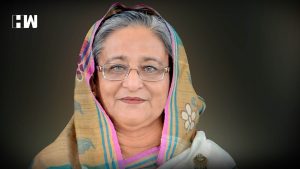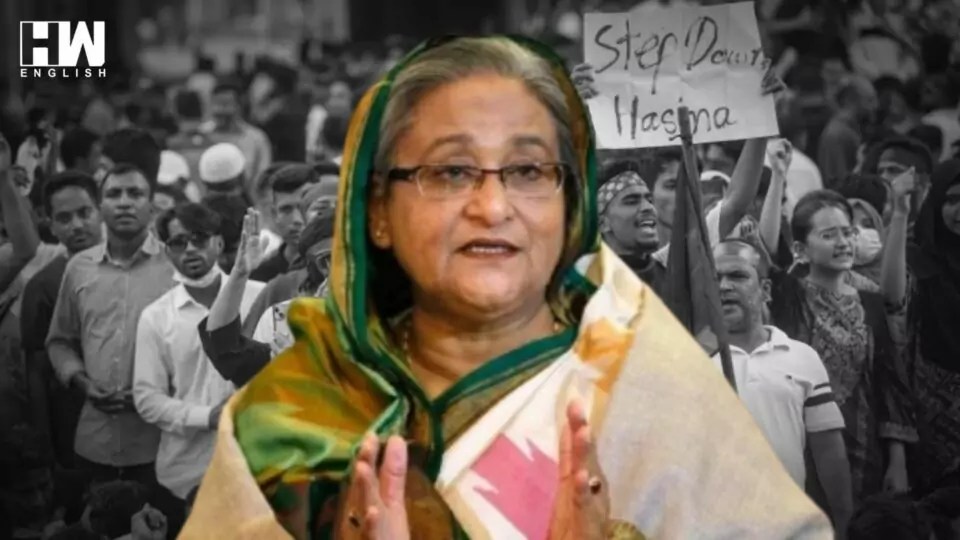On 5th August, Sheikh Hasina resigned as Prime Minister of Bangladesh and fled Dhaka. The army took over and said an interim government will be formed without the Awami League. Hasina’s ouster comes amid violent protests in Bangladesh over reforms in its quota system. More than 400 have died in Bangladesh in the last month.
HW News spoke to Prof. Liyaqat Ayub Khan, Department of Civics and Politics, University of Mumbai to understand the implications of this for India. Edited excerpts:
Q) Your first comments on what has just happened in Bangladesh…
Prof. Khan: Bangladesh has been in a problematic situation for at least for a year or so because [of questions on its elections]. The United States of America had already said that the free and fair elections were not done and it also gave a short verdict of can there be a proper elections? But the present dispensation did not agree for the whole new developments and she said the free and fair elections have happened. The tumultuous approach was there to see of a weak government in Bangladesh.
Now in that sense this government, Sheikh Hasina’s government was really a lot of things but she has been in trouble times for the last one year and the students were protests and for the last few weeks. It was really hard for the Sheikh Hasina to really bring down this particular protest and there are also dynamic approaches which are happening in Bangladesh. My assessment is that an army general never comes out comes out openly and say that we are going to handle things because normally it is a set of interim government which the democratic state should hold on and should not be given the charge to the army officers. Here we see that the army chief comes onto the board and says that he will definitely take actions against all that has happened. So if we look at the situation skeptically, it tells many that have happened and thereby there has to be not only the internal domestic issues but also internationally also there are issues which Bangladesh was facing for the last at least for a year or so and thereby you see she was facing both internal and actual forces.

Q) How did a protest against quota reservation snowball into a mass-mobilisation movement against Sheikh Hasina?
Prof. Khan: It was a combination of factors that was happening for weeks. [Generally] when there are protests on the reservation policy there are committees which are established to rework the system. In Bangladesh, that wasn’t the case. Hasina also was hinting that she may leave the country and she left today.
Q) What next for Sheikh Hasina and Bangladesh?
Prof. Khan: It’s almost done for her because for the whole year she she did not pay attention which she was supposed to be paying and did not allow the secondary operations to happen. If you look at to the situation in Bangladesh right now, the protesters are very happy. But once the once the army comes into picture and when it takes control it will be difficult for the protesters also to vigor them. Right now the demand is of all the students that all people should be relieved from jails and from any kind of arrest that has happened due to the protest but that is not going to so easily happen because it takes its own time.
Q) What does the current situation in Bangladesh mean for New Delhi?
Prof. Khan: We have to really keep our eyes and ears open with respect to the neighboring what is happening. Like Mohamed Yusuf also said on similar lines that something is happening in the neighbor you should also take care of the neighbor and also take interest in the neighbor and that is the reason why India also has to take interest and should also operate accordingly. It should not give a chance for miscreants to cross the border. So it has to be initially sealed. Border should be properly maintained. Number two, we have to give all support to the international system. The army should not be allowed to take much of the time and declare elections which should be free and fair in Bangladesh.
It’s very necessary for the international community to come together and have some kind of a negotiation with Bangladesh. Bangladesh should further should go on an election mode that is very important so that the democratic state is established and democracy prevails over in Bangladesh.
As an independent media platform, we do not take advertisements from governments and corporate houses. It is you, our readers, who have supported us on our journey to do honest and unbiased journalism. Please contribute, so that we can continue to do the same in future.

